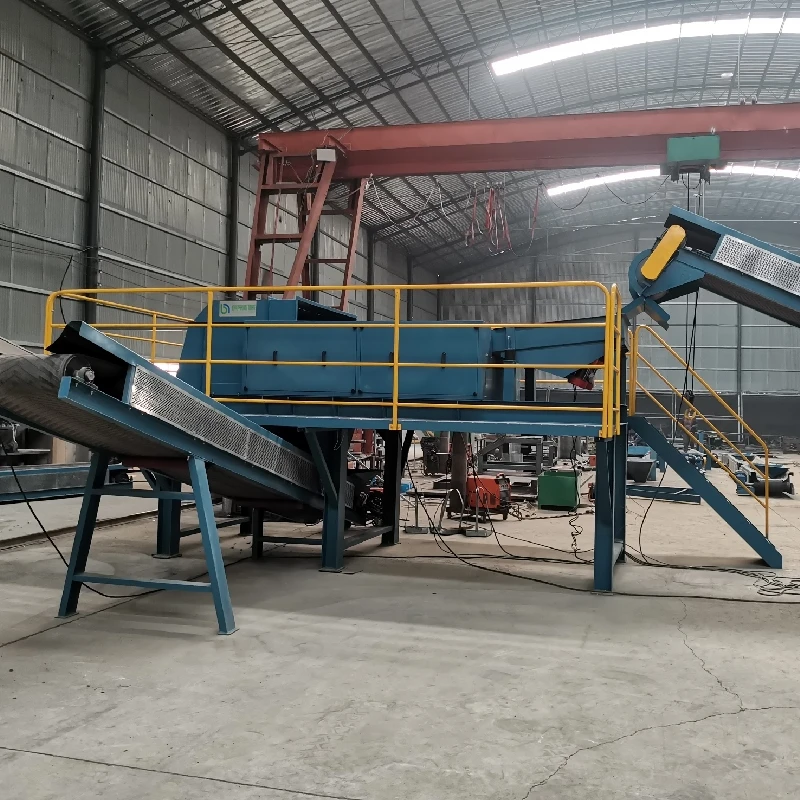
10 月 . 09, 2024 05:11 Back to list
The Importance of Aluminium Recycling Plants
Aluminium is one of the most widely used metals globally, finding its application in various industries, from packaging and transportation to construction and electronics. As the demand for aluminium continues to rise, so does the need for sustainable practices in its production and disposal. Aluminium recycling plants play a crucial role in addressing these challenges by promoting environmental sustainability and resource conservation.
Aluminium recycling is a highly efficient process that can significantly reduce the environmental impact associated with primary aluminium production. The process begins with the collection of used aluminium products, such as beverage cans, foil, and scrap from manufacturing processes. Once collected, the aluminium undergoes a thorough sorting and cleaning process to remove contaminants. This is essential because the purity of the recycled aluminium affects its properties and the quality of the final product.
Once sorted and cleaned, the aluminium is melted in large furnaces. This melting process requires only 5% of the energy needed to produce aluminium from raw materials, making it an energy-efficient alternative. The molten aluminium is then cast into various shapes, including ingots or sheets, which can be used to manufacture new products. This closed-loop recycling process not only conserves energy but also reduces greenhouse gas emissions significantly.
The environmental benefits of aluminium recycling are substantial. For every tonne of recycled aluminium, approximately 9 tonnes of CO2 emissions are avoided compared to primary aluminium production. Additionally, recycling aluminium reduces the need for mining bauxite, which is the primary ore used in aluminium production. Mining operations can lead to habitat destruction, soil erosion, and water pollution, making recycling an environmentally friendly alternative.

Moreover, aluminium recycling plants contribute to the economy by creating jobs and fostering innovation. The recycling industry has been growing steadily, requiring a skilled workforce to handle the sorting, processing, and distribution of recycled materials. This growth not only supports local economies but also encourages technological advancements in recycling processes and equipment, making operations more efficient and sustainable.
Despite the numerous benefits, aluminium recycling plants face several challenges. One of the main issues is the contamination of recyclable materials. Contaminants such as plastic, paper, and other metals can compromise the integrity of the recycled aluminium. Therefore, public awareness campaigns are crucial to educating consumers and businesses about proper recycling practices. By promoting proper sorting and disposal methods, we can enhance the quality of recyclables and ensure a more efficient recycling process.
Another challenge is the fluctuating market demand for recycled aluminium. Market prices for aluminium can be volatile, influenced by global supply and demand dynamics. This unpredictability can hinder investment in recycling infrastructure and technology. To address this, governments and industry stakeholders can promote policies that encourage the use of recycled materials, such as offering incentives for companies that incorporate recycled aluminium into their products.
In conclusion, aluminium recycling plants are vital for creating a sustainable future. They not only reduce the environmental impact of aluminium production but also support economic growth and job creation. By enhancing public awareness and addressing the challenges faced by the recycling industry, we can maximize the benefits of aluminium recycling and contribute to a healthier planet. As we move towards a more circular economy, the role of recycling plants will become increasingly important, making it essential for all stakeholders to work together to promote sustainable practices in aluminium production and consumption.
Latest news
Unveiling the Power of Eddy Current Separator
NewsSep.25,2024
Transform Your Home Recyclin:home metal shredder
NewsSep.25,2024
The Future of Waste Management with Recycling Line Picker
NewsSep.25,2024
The Benefits of a Metal Recycling Plant
NewsSep.25,2024
Revolutionize Material Separation with Onwang Technology
NewsSep.25,2024
Innovative Waste Management: Unveiling the MSW Sorting Plant
NewsSep.25,2024